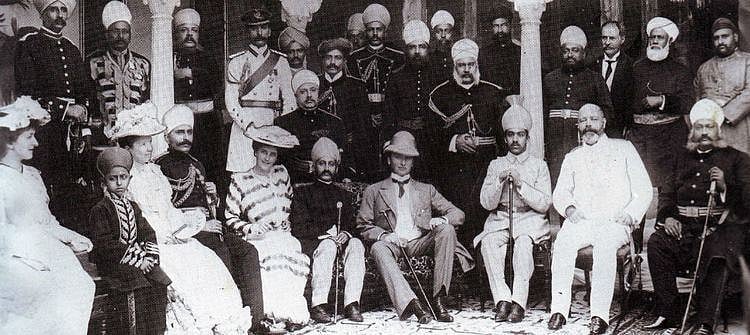Kursi Nashin: Being 'entitled' to a chair in British Raj
British patronage was closely bound up with public distribution symbols of prestige, such as a kursi (chair) at the darbar & Afrinnamas. The Indians vied for such “honours” and petitioned for the same

So, who were the ‘Kursi Nashins’ and how were they chosen? A certificate issued in 1887 and being circulated on social media has generated much curiosity. Ostensibly, the certificate entitled the holder to a seat or chair, presumably in government offices and in the presence of officials. Hence the honorific ‘Kursi Nashin’ is the most obvious explanation.
Not much historical reference is available though. Writer-filmmaker-historian Sohail Hashmi says the British had different ways of bestowing favours and this was one such device to keep privileged Indians happy and preening.
“Even in the Mughal Durbar, few had the privilege to sit. Most of the people would stand,” explains historian Swapna Liddle, who believes the British adopted the practice from Mughals.

“Not everyone can sit before an official even today,” quips Prof Irfan Habib. The only difference is that the permission is no longer issued in writing.
While he does not remember any reference to ‘Kursi Nashins’, he points out that the certificate being shared online is printed but the names were written by hand. This would indicate that the certificates were widely issued and names were filled in as and when required, he adds.
Sarah FD Ansari in her book ‘Sufi Saints and State Power: The Pirs of Sind, 1843-1947’ notes, “British patronage was closely bound up with public distribution symbols of prestige which conferred status such as the kursi at the durbar itself or Afrinnamas or certificates of appreciation written in silver or gold lettering; lunghis of different qualities of cloth; swords and guns inscribed with thanks for services rendered; arms licences and more importantly exemption from arms licences; and the honour of being excused from appearances in the civil courts.”
These were all privileges which bestowed izzat to Indians for helping the administration.
That Indians vied for such “honours” and petitioned for the same is borne out by what J. Wilson, a British Settlement Officer reported in ‘Final Report on the Revision of Settlement of the Sirsa District in the Punjab’ (1884). He underlined the servile nature of Indians and the importance they attached to privileges as being offered a chair by the Raj officers or hakims.
“It is thought a great honour to be allowed to sit on a European chair before a ruler and great anxiety is shown by the leading men to be placed on the list of chair-sitters (Kursi Nashin) who alone have that privilege. A man must of course take off his shoes before he comes into the presence and he must not sit down or take his leave until he is given permission...,” Wilson added.
Wilson lampoons Indians and records, “Towards superiors and especially towards a ruler (hakim) the people are as polite as they know how, and in such circumstances their politeness generally takes the form of most fulsome flattery and extravagant gestures…a man anxious for some favour will grovel on the ground and put dust on his head or take off his turban and cast it on the ground…Or in short do anything that he thinks will please the superior from whom he is asking a favour.”
Well, a chair in government offices continue to signal ‘status’ and privilege in ‘new’ India.
Hashmi recalls with a laugh, “There was this batchmate of mine at JNU who came from a zamindar family of Lucknow. The family was granted an annual pension of six rupees. That continued decades after independence. This batchmate would go all the way to Lucknow to collect this pension. It was not about the money but the pension shows that we belong to erstwhile aristocratic family,’ he told me,” Hashmi recalls.
Follow us on: Facebook, Twitter, Google News, Instagram
Join our official telegram channel (@nationalherald) and stay updated with the latest headlines
